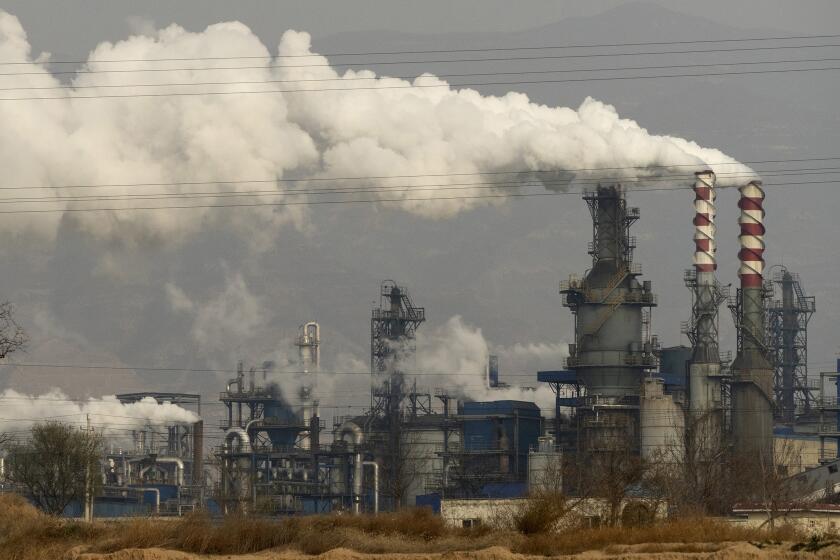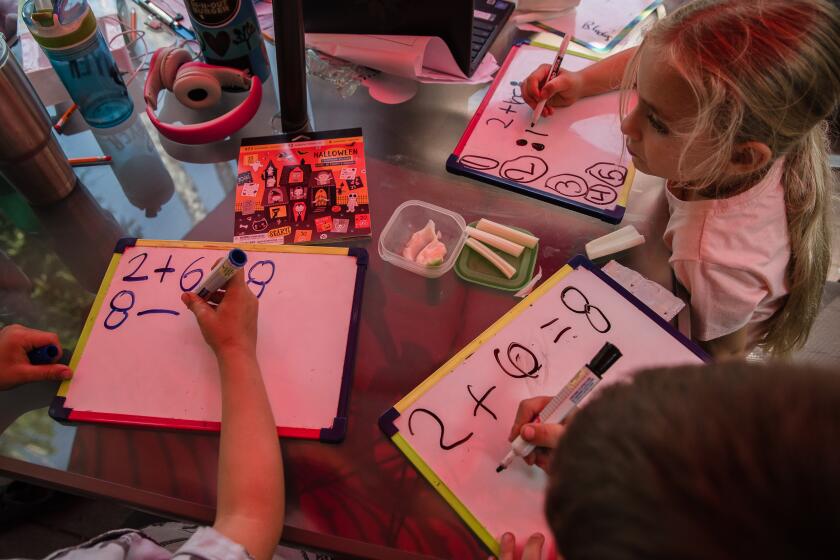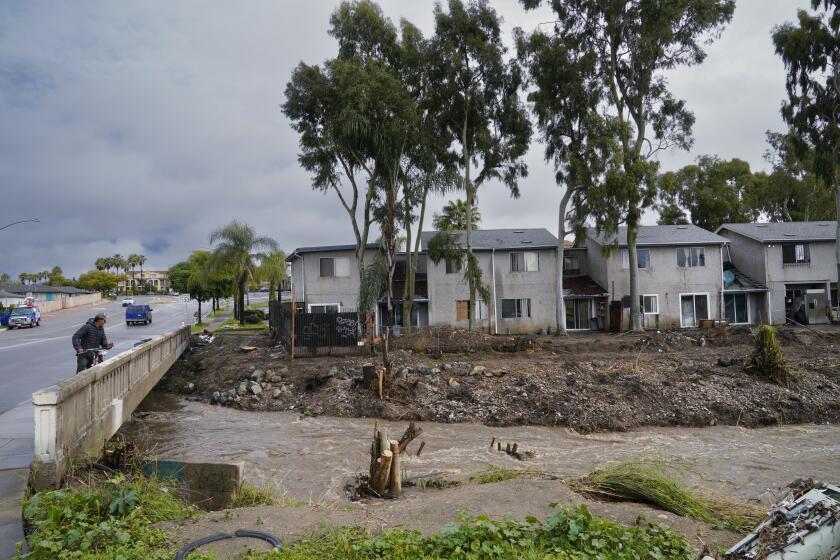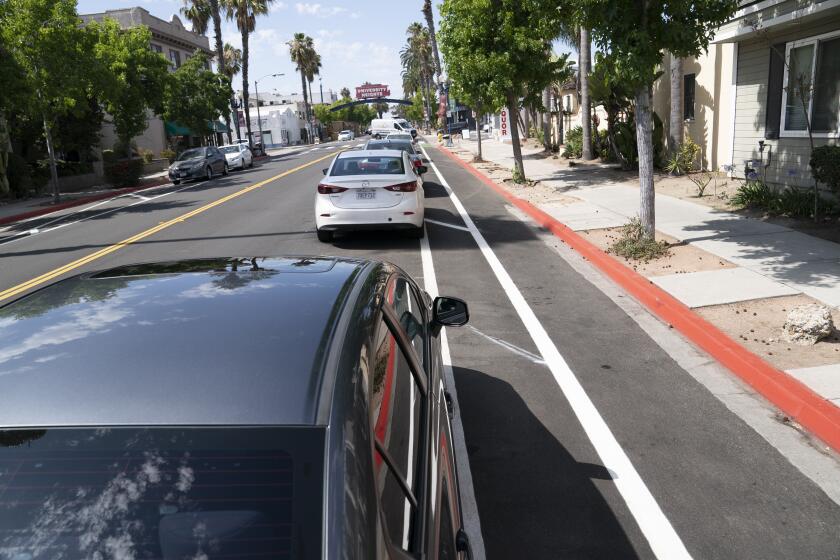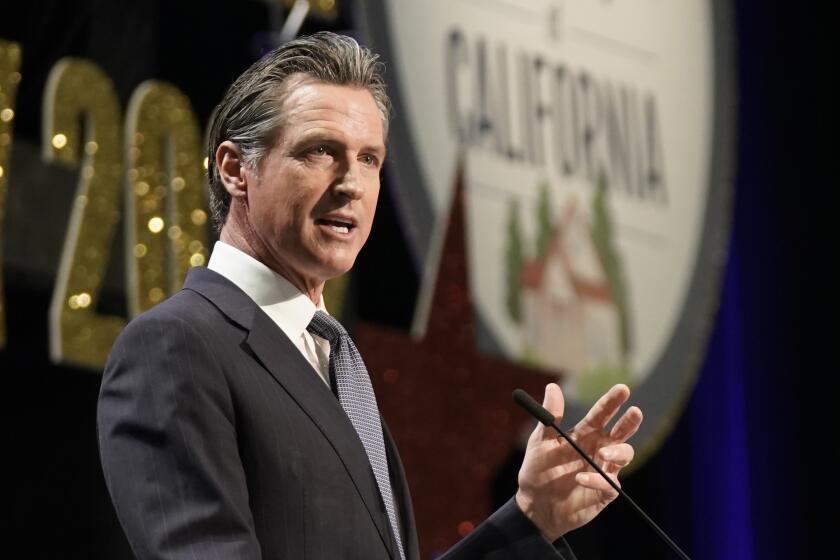Commentary: What it means to be an American
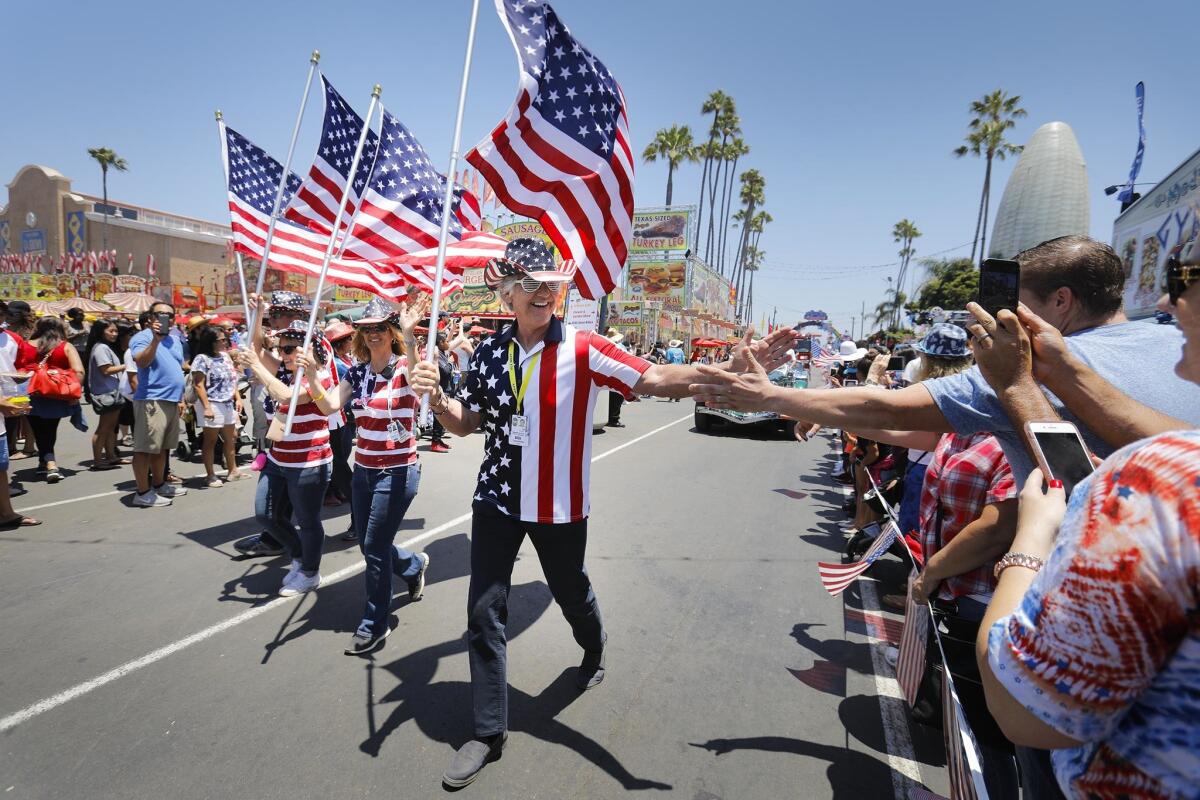
In advance of the Fourth of July, The San Diego Union-Tribune asked several local residents to answer the following: What does being an American mean to you? Here are their answers.
Lucky to live in land of many blessings
By J. F. Kelly Jr.
While serving as a career naval officer and since returning to civilian life, I’ve enjoyed the experience of traveling the world. My wife and I have sampled the rich and unique cultures of many countries and it’s been great fun but nothing ever quite matched the joy and pleasure we always felt on returning home to America. It was then that we realized just how fortunate we were, through an accident of birth and no effort on our part, to be citizens of the greatest nation on earth.
In addition to overseas travel, that military service meant a change of duty station every two or three years. We’ve lived on the East Coast and the West Coast, in the North and in the South, and in between. We have experienced much of the variety and diversity this vast land has to offer, and yet we have always felt at home. We’ve discovered that Americans, for all their differences, have far more in common than what divides them. Chief among the things that unite them, I believe, is love of country. We aren’t perfect, but there is none better.
The freedoms and rights that others before us have fought and died to establish and preserve are too often taken for granted by us. We need to realize that many of these freedoms and rights are beyond the reach of most people in many countries. Small wonder, then, that many will give up what little they have and even risk their lives to come here by any means they can.
As we celebrate America’s 243rd birthday, we should reflect upon what a gift it is just to be a citizen of a land that enjoys so many blessings. Rather than focusing on what more we might wish for, let us give thanks for all that America has given us. Happy birthday, America, and thanks.
Kelly, a retired navy captain, is a freelance writer living in Coronado.
A promise of equality, opportunity
By Linda Caballero Sotelo
Being an American means believing in a shared and unifying ideal of democracy lived out day to day in a particular place called the United States of America. It is imagining and believing in the promise that anything is possible in America as opportunity abounds no matter your circumstances, race, or ancestors’ place of origin. An ideal many of us have bought into and why we seek the promised rights, equality and freedom espoused to the world is the underpinning of our country’s founding on that July 4, 1776, and ratified by us all, ordinary Americans, as our expressed right to “life, liberty and the pursuit of happiness.” Those words have become such a unique and aspirational expression of our shared values as Americans.
To me, it has meant aspiring to, and being able to achieve, anything in a country that despite its complicated history of inequality and contradictions remains, in essence, free and noble in its pursuit of opportunity and equality. It’s historically a welcoming beacon of hope that millions aspire to. The place that is my home by choice if not by birth. A land of contrasts where many have found our common and shared identities based on the promise of equality, opportunity and freedom. This wonderful, difficult, brave, at times bittersweet, land of ours of which the great American poet Langston Hughes expressed, “O, let my land be a land where Liberty is crowned with no false patriotic wreath, But opportunity is real, and life is free, Equality is in the air we breathe.” The same land that I dream for my children and their children, and their children.
Caballero Sotelo is executive director of New Americans Museum.
Freedoms came later for some
By Clovis M. Honoré
The United States has not been celebrating July Fourth for 400 years. That’s how long most Africans in America trace our plight on this continent. Not all, but most. By the time the wealthy, white, landholding Continental Congress men signed the Declaration of Independence, Africans had already endured 157 years (or more) of enslavement by the British colonizers. The august men who signed that revered document proclaiming “life and liberty” as God-given rights of all (men), decided it was OK for Africans and their descendants to endure another 89 July Fourths in slavery, in the “land of the free,” until it no longer served the political and economic interests of the Northern states, whose industrial development gave them the advantage in the Civil War.
Since then we have seen forward and backward motion in fits and spurts regarding white America’s attitude toward the people of African descent. White power, white supremacy and white privilege have always clawed back some of the gains African descendants have made, after Reconstruction, legal battles, world wars and the civil rights era — as if we have ever made gains enough to serve as reparations for what was stolen from our ancestors and is now subsumed within the wealth of America and (mostly white) Americans.
After 400 years, the Bible tells us God got tired of it all and had a plan for the sudden and dramatic liberation of an oppressed people in an ancient land. The most powerful nation on Earth suffered a crippling defeat without ever fighting a battle. It was primarily because of a recalcitrant and egotistical leader who would not listen to anyone’s counsel. One can only hope history will repeat itself, and my people will be free in short order, by divine order.
Honoré is president of NAACP San Diego Branch.
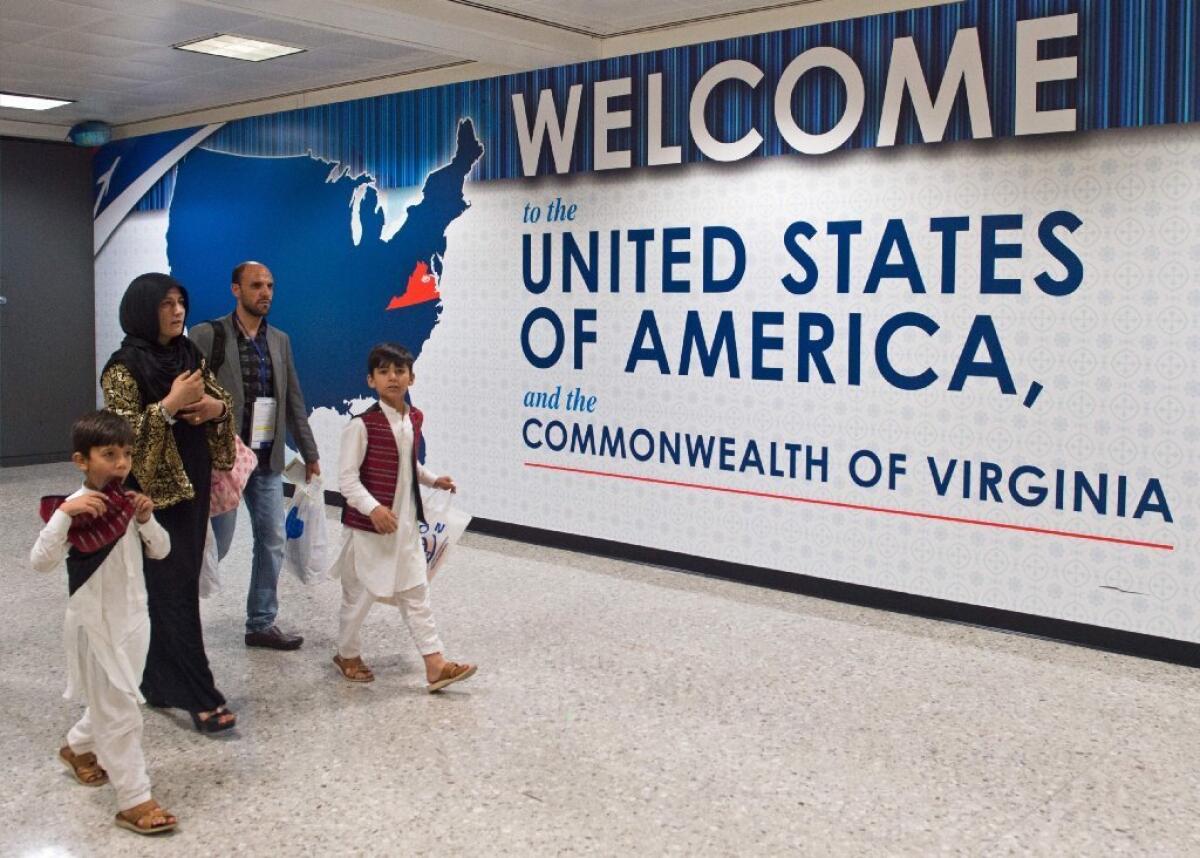
Appreciating idealism, cultural fusion
By Penny Bridges
I am an immigrant, born and raised in Northern Ireland during the “troubles” of the 1960s. When I arrived in New Hampshire 34 years ago, I didn’t intend to stay; I had a work visa for a year. But within six months, I had fallen in love with America: the clean air, the hopeful idealism, the glorious geography, the sense that things were getting better and better, the refreshing faith in God, government and the American dream. It was here that I had my children and here that I discovered my true calling as an Episcopal priest.
In 2012, I applied successfully for U.S. citizenship. What does it mean to be an American? It means actively participating in the democratic process without fear. It means being part of a magnificent experiment of hospitality and cultural fusion, as we continue to welcome immigrants from every part of the world. It means learning about the shadow side of this continent’s history, repenting in community, and doing what I can to lift up those who have been oppressed. It means being conscious of privilege and giving it away so that others can enjoy equal opportunity.
It means that I and all my neighbors in their glorious diversity are free to practice our faith or no faith, to live in any neighborhood, and to marry whomever we love. These are characteristics that, for me, make America great and that cause me to give thanks for the men and women who have worked and fought to achieve freedoms that citizens of many countries dare not imagine. Independence Day is an occasion to remember those heroes and heroines and to recommit ourselves to continuing their struggle.
Bridges is dean at St. Paul’s Episcopal Cathedral
Service, sacrifice brings satisfaction
By Haney Hong
To me, being American means being ready to sacrifice something for myself for my wife, my family, my neighborhood, my community, my country.
And I’m not just talking about picking up arms for the defense of our great nation if things go south, which could happen soon with Iran or North Korea. Yes, while I’m ready to do that very thing as a Navy Reservist, being American is also about this idea that — in the words of one of our own community members, Malin Burnham — I have to put my community before myself.
Being American is about my dad who immigrated from South Korea and then worked his tail off to make sure my family had food on the table. It’s about my staff at the San Diego County Taxpayers Association, who have given up lots of personal time and taken on so much responsibility for our mission. It’s about the friends I have in the for-profit and not-for-profit sectors investing time in the community to help others even though they know they’ll get very little, if anything, out of it.
My dad, my staff, my friends in the community all showcase the same qualities: hard work, deferred gratification, commitment to duty, generosity.
That’s why to me, being American always comes back to the concept of sacrifice. I have to be ready to sacrifice my own life in war. I have to be willing to give up my right to free speech in not always saying what I think as the president & CEO of the San Diego County Taxpayers Association. I may even have to sacrifice a bit of my own pursuit of happiness because of the stresses of work.
But my reward comes in the form of satisfaction and personal fulfillment. That’s also part of being American.
Hong is president and CEO of the San Diego Taxpayers Association.
Celebrating diversity, embracing differences
By Lallia Allali
Seventeen years ago, my small family and I embarked on a journey that would change our lives forever. In September 2001, my oldest daughter, Selma, and I set foot in America, following in the footsteps of my husband who came here one month prior to us. I was scared; moving to a new country without knowledge of the language, culture and people was a challenging step in my life journey. Not sure of what to expect, I engaged in American society to raise my children in the best possible environment, in the country of opportunities.
I am now blessed with four bright angels in elementary, middle, high school and college. As they successfully go to school and work hard in their classes to shape their future, I often ask myself, what does “being American” mean to me?
Many groups have come to America. Some came in quest of a more prosperous life. Some came to protect their religious freedom, ethnic values or political views. Others were forcefully brought across the Atlantic, while some Americans’ ancestors were here long before the Europeans; they were the indigenous. To me “being American” means to celebrate our diversity and embrace our religious and cultural differences.
As a nation of immigrants, being American means to understand and learn from one another, it also means to welcome, care and alleviate the sufferings of people around us. Being American means respect, protection and safety for all. No matter what language you speak, what religion you practice, what culture you hold onto, you’re still American. Each group and community have contributed its rich heritage and unique culture to create American society and American identity that transcends our individual differences.
Allali, a leadership coach, is a member of the Union-Tribune Community Advisory Board.
Get Weekend Opinion on Sundays and Reader Opinion on Mondays
Editorials, commentary and more delivered Sunday morning, and Reader Reaction on Mondays.
You may occasionally receive promotional content from the San Diego Union-Tribune.
